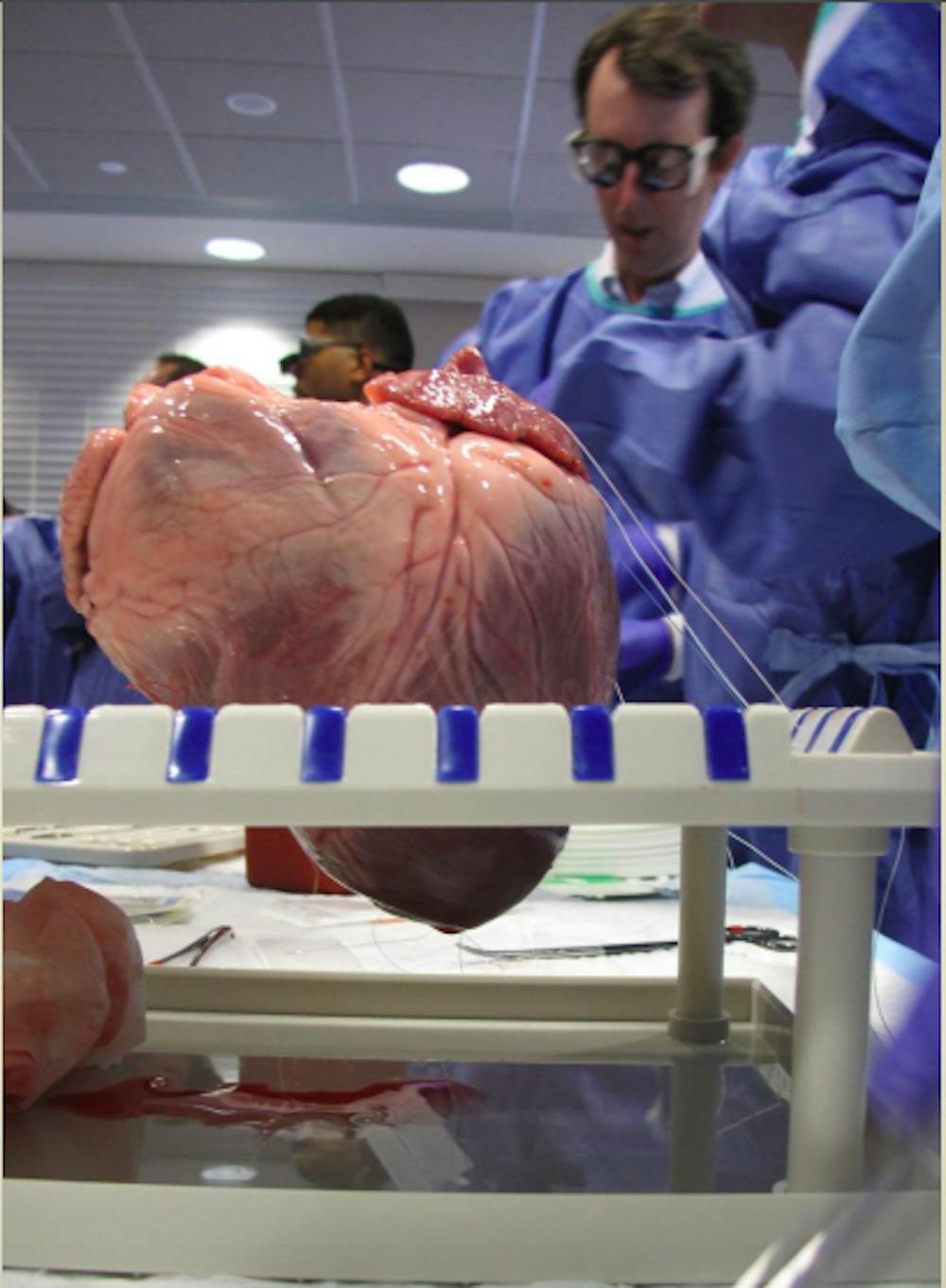Surgeons have the ability to practice and perfect complex heart surgeries without any consequence due to advancements in heart simulators.
One company has been able to contribute to heart simulator technology with a simple question, “Dad, how do you build a heart pump for a pig?”
Alec Grubbs came home from his internship to ask his father, Andy Grubbs, how to engineer an air pump for a heart. Andy, a UNC entrepreneurship professor, venture capitalist and mechanical engineer, became instantly intrigued with his son’s question and decided to go to work with him the next day.
That’s when Andy Grubbs met Richard Feins, a UNC School of Medicine professor of surgery, and offered his mechanical engineering expertise to Feins since thoracic surgeons and biomedical engineers typically aren’t taught how to build air pumps.
Feins had hired Alec Grubbs to help build the lung surgery simulator to help teach surgery residents how to perform a lobectomies — removing one of the lobes of the lung. The goal was to create an air pump to make the heart appear to be beating.
Feins had previously reached out to Dr. Paul Ramphal and Professor Daniel Coore to teach him how to make a heart simulator, after Feins had found their research on creating heart simulators. After Andy met Feins, Ramphal and Coore he became interested in the business aspect of what they had invented. In 2010, Feins, Alec, Dr. Matt Dedmon and Andy collaborated to filed and received two grant patents that UNC owns and KindHeart exclusively licences.
This was the inception of KindHeart, a startup company founded in 2011 by Grubbs and Feins based on the technology they built for a complete cardiac surgery simulation system that makes a pig heart behave the same as a human’s during open-heart surgery.
“So getting the proper components, skills, training in a safe environment where there’s no human life at risk or take life at risk, really puts the students on the right start,” Grubbs said. “But it’s like learning how to play golf from a professional, from day one, you don’t have bad habits to learn.”
The Product



